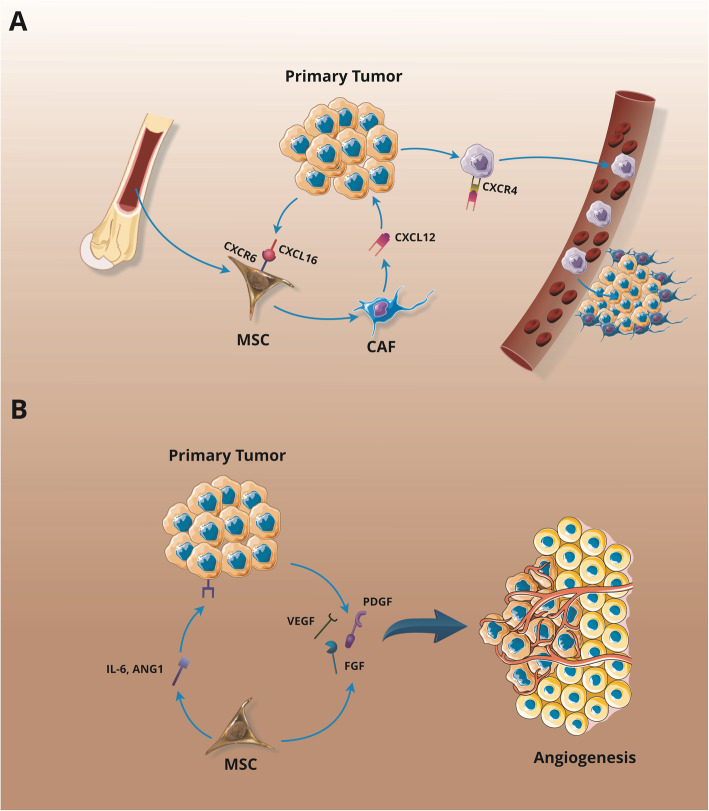Fig. 4.
MSCs role in tumor metastasis (a) and angiogenesis (b). a The cancer cells release CXCL16 which can elicit the recruitment of MSCs in the tumor site. Upon the bindings of CXCL16 to CXCR6 on MSCs, they are transformed into CAFs producing high levels of CXCL12. CXCL12 stimulates the EMT process on cancer cells that promote CXCR4 expression in cancer cells, leading to their metastasis. b The MSCs commonly generate and release varied angiogenic mediators surrounding angiopoietin-1 (ANG-1) and IL-6 that, in turn, provoke the release of VEGF and other angiogenic factors stimulating tumor angiogenesis. CAF; cancer-associated fibroblast, EMT; epithelial-to-mesenchymal transition, MSC; mesenchymal stem/stromal cell, FGF; fibroblast growth factor, ANG-1; angiopoietin-1, PDGF; platelet-derived growth factor, VEGF; vascular endothelial growth factor

